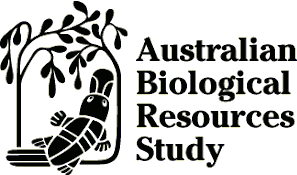Australian Tropical Rainforest Plants - Online edition
Trichodesma zeylanicum (Burm.f.) R.Br.
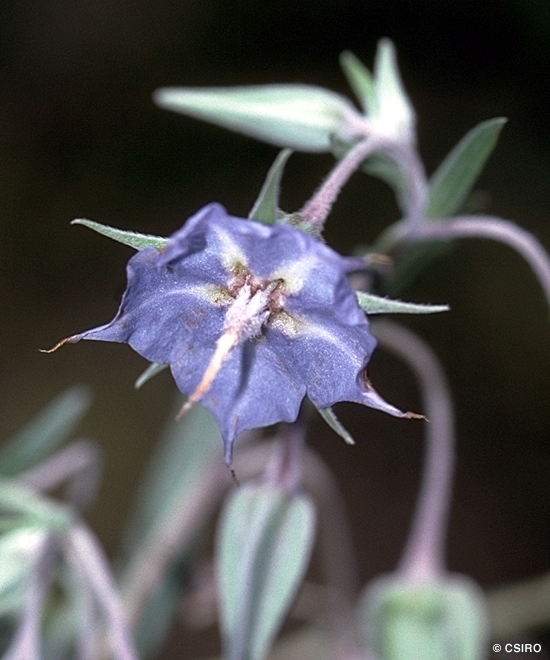
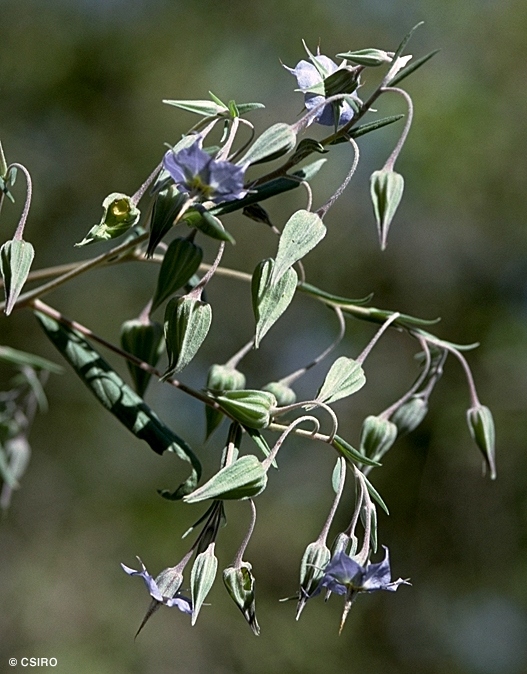
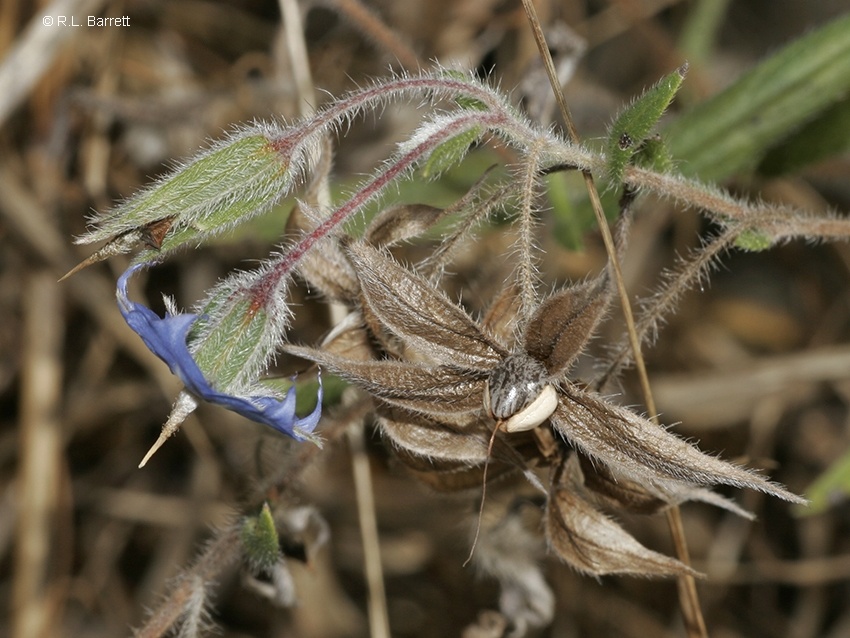

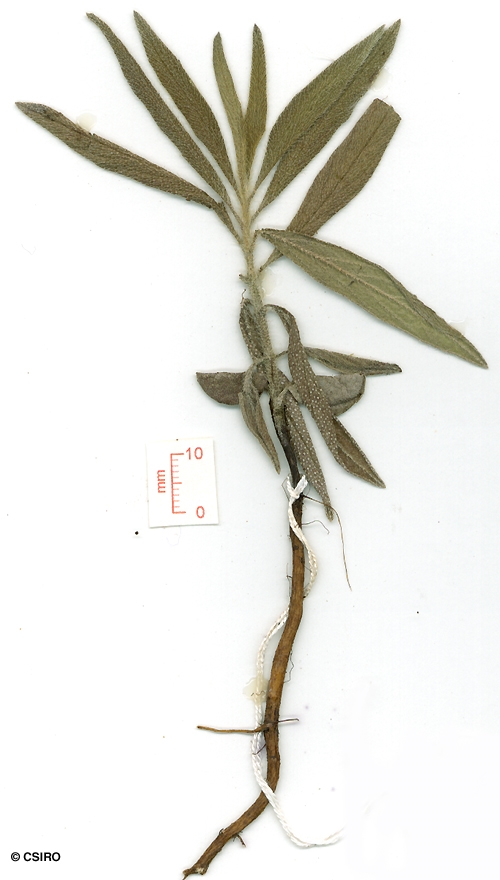

Brown, R. (1810) Prodromus Florae Novae Hollandiae : 496.
Camel Bush; Cattle Bush; Jilarga; Rough Bluebell
Usually flowers and fruits as a herb about 30-40 cm tall but occasionally grows into a shrub about 1 m tall.
Leaf blades very variable in size, about 3.5-10.5 x 0.7-2 cm but always bearing white scabrous hairs on both the upper and lower surfaces so that the leaves have a sandpapery feel. Finer silky hairs also present. Lateral veins depressed on the upper surface of the leaf blade. Stems and twigs also clothed in white scabrous hairs.
Flowers about 15-20 mm diam. Calyx clothed in white appressed hairs on both the inner and outer surfaces. Calyx lobes fused together near the base by means of the hairs on the edge of each calyx lobe. Corolla cream towards the centre but the lobes blue, ending in long spirally coiled tips. Each anther ending in a long appendage which is hairy in the lower half and spirally twisted at the apex.
Nutlets about 3-4 mm long, enclosed in the persistent calyx lobes.
Hypocotyl glabrous. Stem above the cotyledons clothed in erect hairs. Cotyledons almost orbicular, about 15-16 mm diam., scabrous on the upper surface. At the tenth leaf stage: leaves clothed in stiff white scabrous hairs. Lateral veins forming indistinct loops inside the blade margin. Seed germination time 40 to 845 days.
This plant is an attractive sub-shrub which flowers prolifically and does well in cultivation as well as being widespread in nature. Aborigines in the north of Western Australia used it as a decoction applied to sores. It was recommended to the settlers by such authorities as Maiden and Bailey on the basis of its reported use in India as a diuretic and treatment of snakebite. Cribb (1981).




